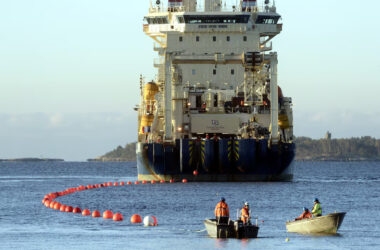In a decisive move that signals a shift in Greenland’s geopolitical posture, newly elected Prime Minister Jens-Frederik Nielsen has thrown his weight behind a stronger alliance with Denmark, distancing the Arctic territory from Washington following months of rising friction with the United States.
Speaking during his first official visit to Copenhagen on Saturday, Nielsen made it clear: Greenland’s path forward lies in deeper cooperation with Denmark, not in cozying up to foreign powers. “We’re charting a course that reinforces our place within the Danish Realm,” Nielsen declared, according to Danish and international media.
The visit comes just weeks after a pivotal April election that ended a stretch of political gridlock and brought to power a coalition that supports greater self-rule—but with a pragmatic twist. Rather than fast-tracking full independence, the new government plans to double down on economic partnerships and political stability within the Danish framework.
Behind this pivot? A growing backlash to what many in Europe have called the U.S.’s “disrespectful” handling of Greenland’s sovereignty. Former President Donald Trump’s repeated suggestions that America could purchase—or even forcibly take over—the island have not gone over well in Nuuk or Copenhagen. That rhetoric, Danish MEP Anders Vistisen quipped, only made Greenland’s long-standing union with Denmark look “more attractive by the day.”
Nielsen didn’t mince words either. Greenland, he said flatly, “is not a piece of property for sale,” pushing back against what he described as Washington’s “arrogant” attitude toward the island and its people.
Greenland has been an autonomous territory within the Kingdom of Denmark since 1979, running its own domestic affairs while Copenhagen remains in charge of foreign policy and defense—responsibilities that come with substantial financial backing from Denmark. Yet while many Greenlanders maintain a strong cultural identity and dream of eventual full independence, economic and strategic realities have kept the territory closely linked to its Nordic partner.
The new government appears to be leaning into that reality, prioritizing joint projects on infrastructure, resource development, and environmental protection. As German broadcaster DW reported, those shared initiatives are expected to form the backbone of the next phase in Greenlandic-Danish relations.
Meanwhile, U.S. military interests in Greenland remain focused on the Thule Air Base, a critical Arctic outpost that operates under agreements with Denmark. But skepticism toward Washington’s long-term intentions appears to be growing in Nuuk.
With the Arctic becoming a geopolitical hotspot—thanks to melting ice, rare earth mineral reserves, and renewed great power rivalry—Greenland finds itself in a delicate balancing act. For now, however, Prime Minister Nielsen is signaling that trust, not bravado, will guide his government’s foreign policy.
As Vistisen put it, “The loud man with the red tie may have done more to unite Greenland and Denmark than decades of quiet diplomacy ever could.”




